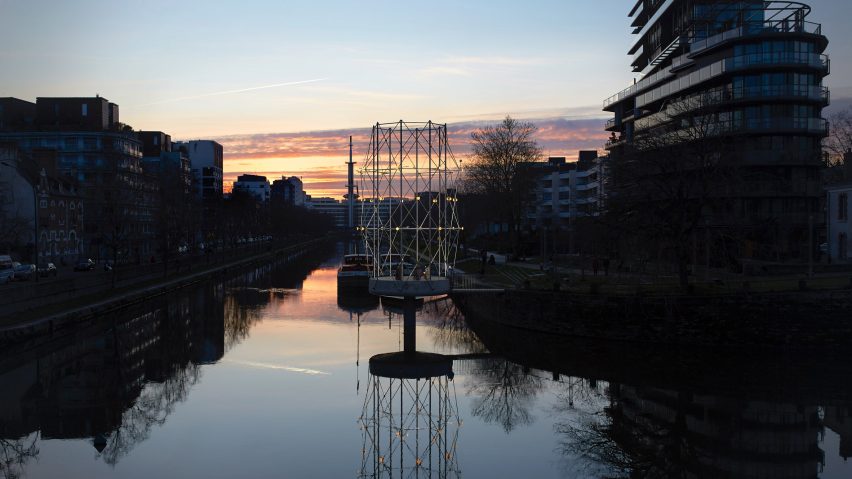
Bouroullec brothers create folly as "point of contemplation" above Rennes river
French designers Ronan and Erwan Bouroullec have created the slender Le Belvédère pavilion above the River Vilaine in Rennes, France, which is lit up by globular lights at night.
The brothers designed the folly, which is accessed by a footbridge from the Quai Saint-Cyr, to be a place of reflection in the centre of the French city.
The designers chose the location as it was surrounded by a mix of both the city's contemporary and traditional architecture.
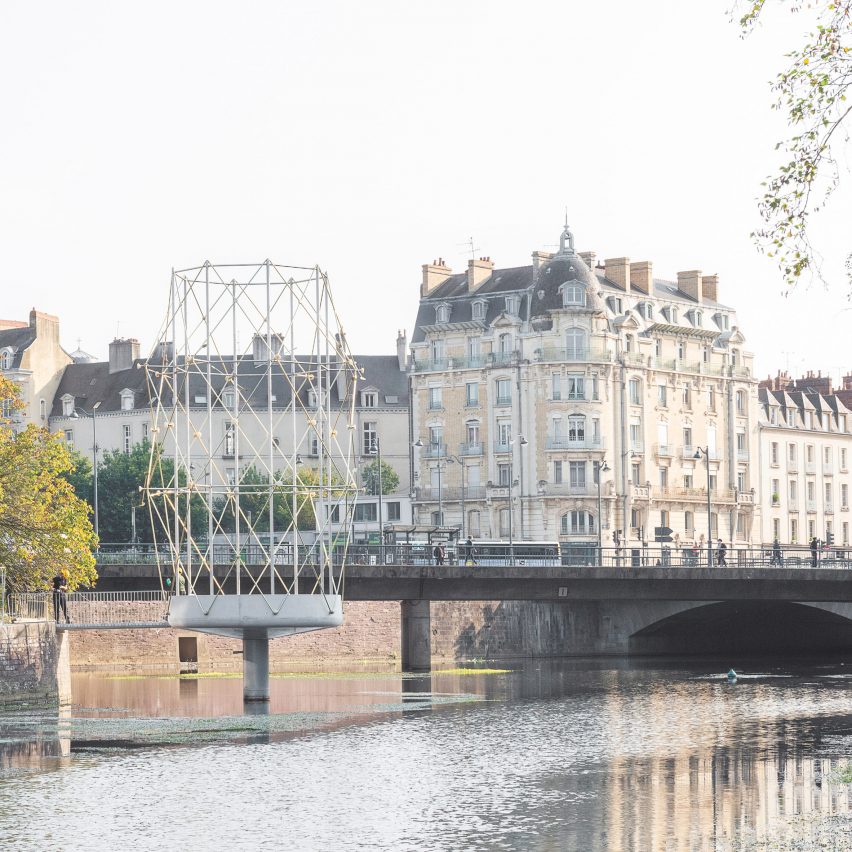
"While there are numerous interesting positions in Rennes, the clear choice, in the Vilaine, gives a particular view of the cathedral, the old town, and of the emblematic modern and contemporary buildings of Rennes: Louis Arretche’s Mabilais, Georges Maillols’ Horizons, as well as more recent residential projects by Jean Nouvel and Christian Hauvette," Ronan Bouroullec said.
"The proximity of the Mail François-Mitterand, which is a popular new amenity for the people of Rennes, also struck us as important."
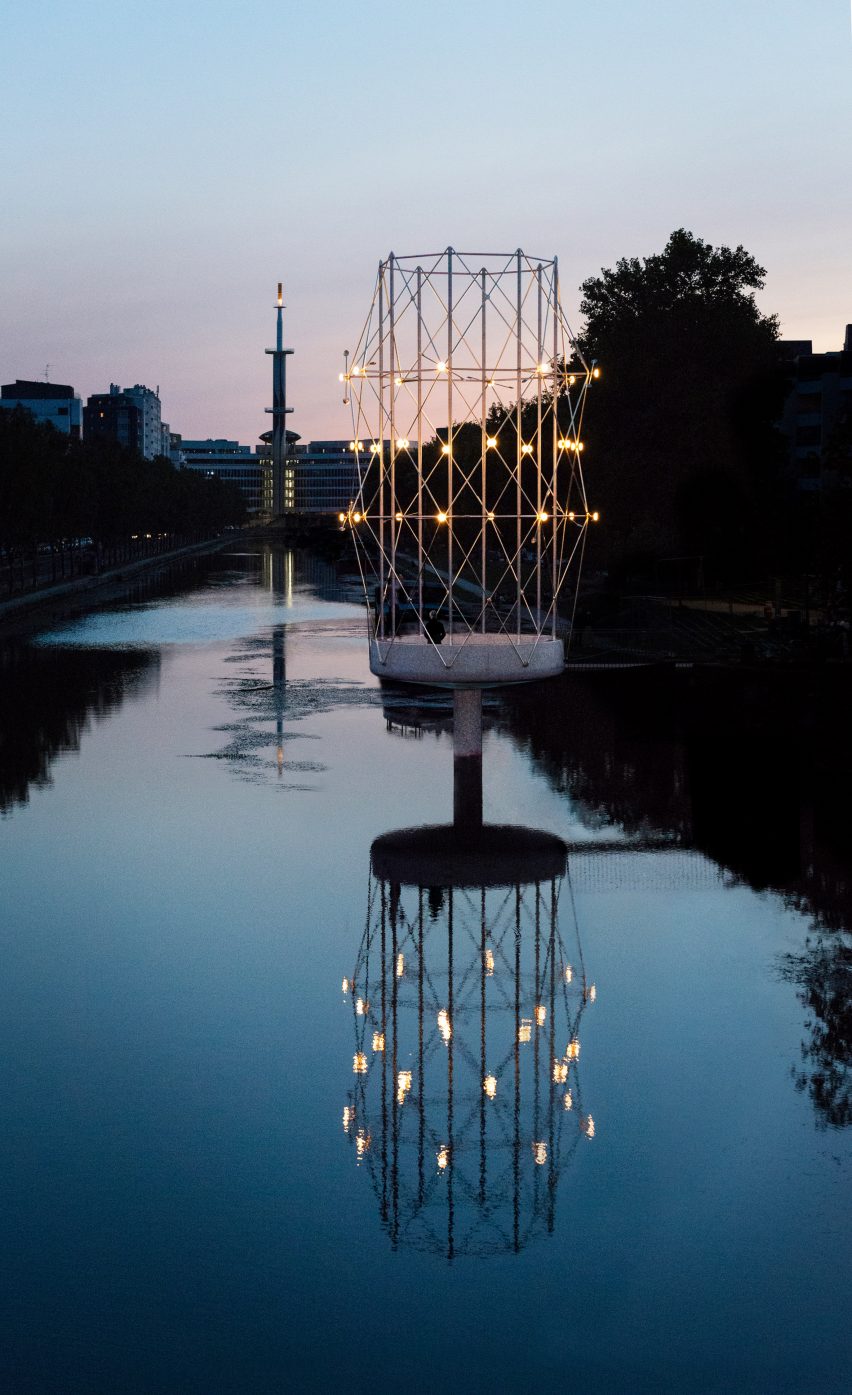
Le Belvédère consists of a circular concrete platform supporting a slender structure made from stainless steel masts and a lattice constructed from anodised aluminium bars.
This 13-metre-high folly holds 32 luminous orbs that transform it into a miniature lighthouse at night, as well as 16 mobiles that move with the wind.
"Fine and virtually transparent, the Belvedere is about 13 metres high; it exists without existing, both present and restrained, very different at night, when it takes on the air of a lighthouse," Ronan Bouroullec explained.
"The wind that activates the 16 mobiles, the weather and seasons that visibly affect the shine of the structure, also have an important role in one’s changing perception of the object."
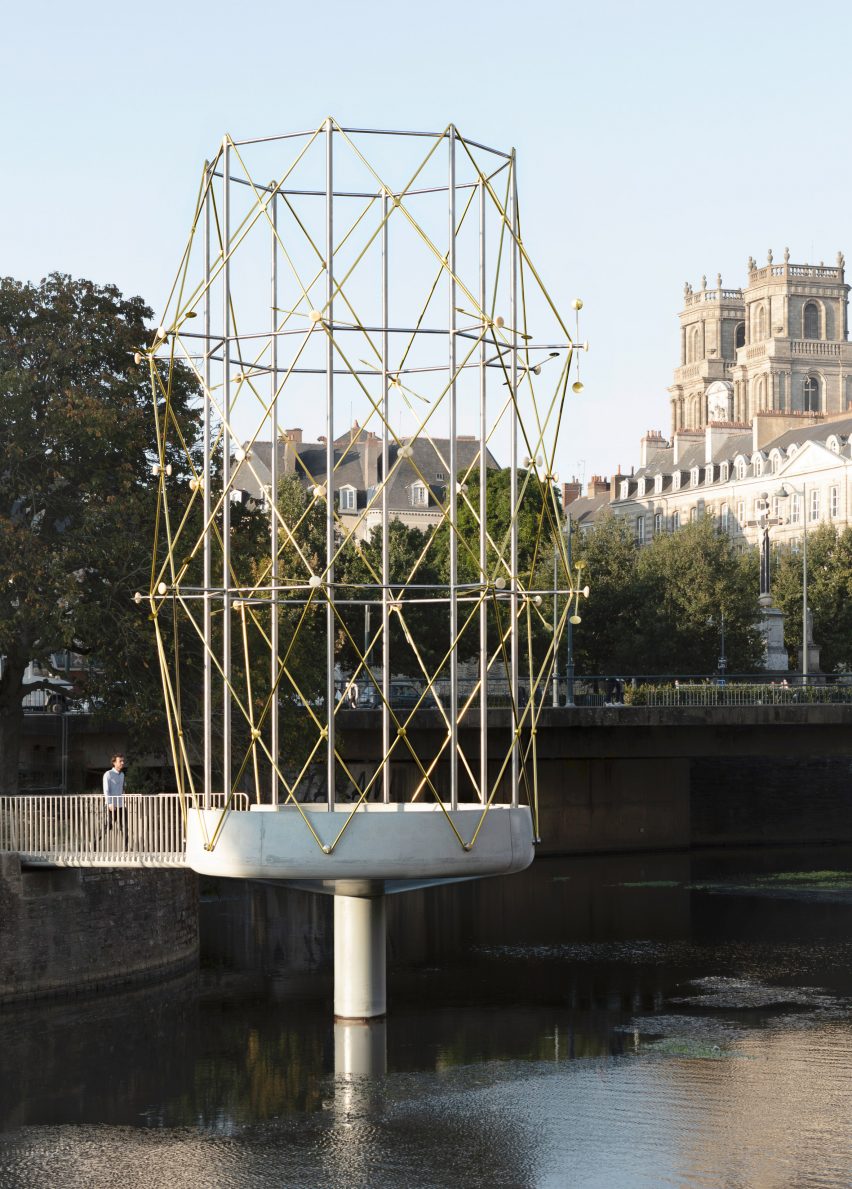
The idea for the project started with the Rêveries Urbanies, a 2016 exhibition in Rennes that showed recent work by the Bouroullec brothers and presented around 20 ideas for the development of public spaces.
After the exhibition ended, it was decided that one of these projects for the public space should be installed in Rennes and Le Belvédère was born.
"The 'Rêveries Urbaines' exhibition that was shown in the Champs Libres was our response to this: an exhibition that was the result of research around how we could contribute to a city – not particularly thinking of Rennes, but rather cities in general," explained Ronan Bouroullec.
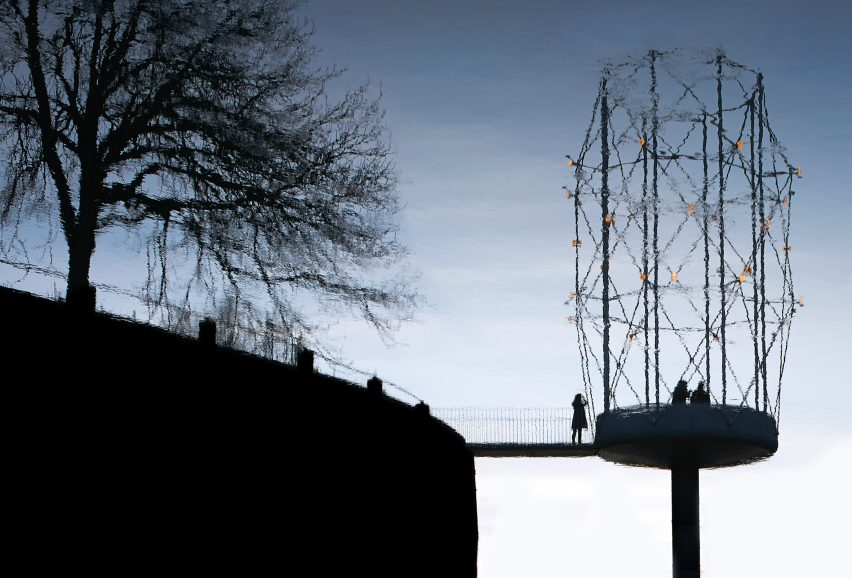
As Le Belvédère was designed free from commercial restraints, the brothers were able to create a structure that can be interpreted in many ways.
"When it is not destined for purely commercial use, street furniture generally replies to a very specific function," said Ronan Bouroullec.
"It is a significant element that for reasons of symbolism and because of its position in the city, restores interest in an object that is freely open to any use one cares to name: a lighthouse and a landmark in the city, a place for new encounters and a meeting point, a place of contemplation," he added.
The Bouroullec brothers have also recently designed a chair that was made from one continuous piece of rope. As part of Dezeen's Virtual Design Festival, Erwan Bouroullec spoke to us about their design for Danish textile brand Kvadrat.
Photography is by Yann Peucat unless stated otherwise.